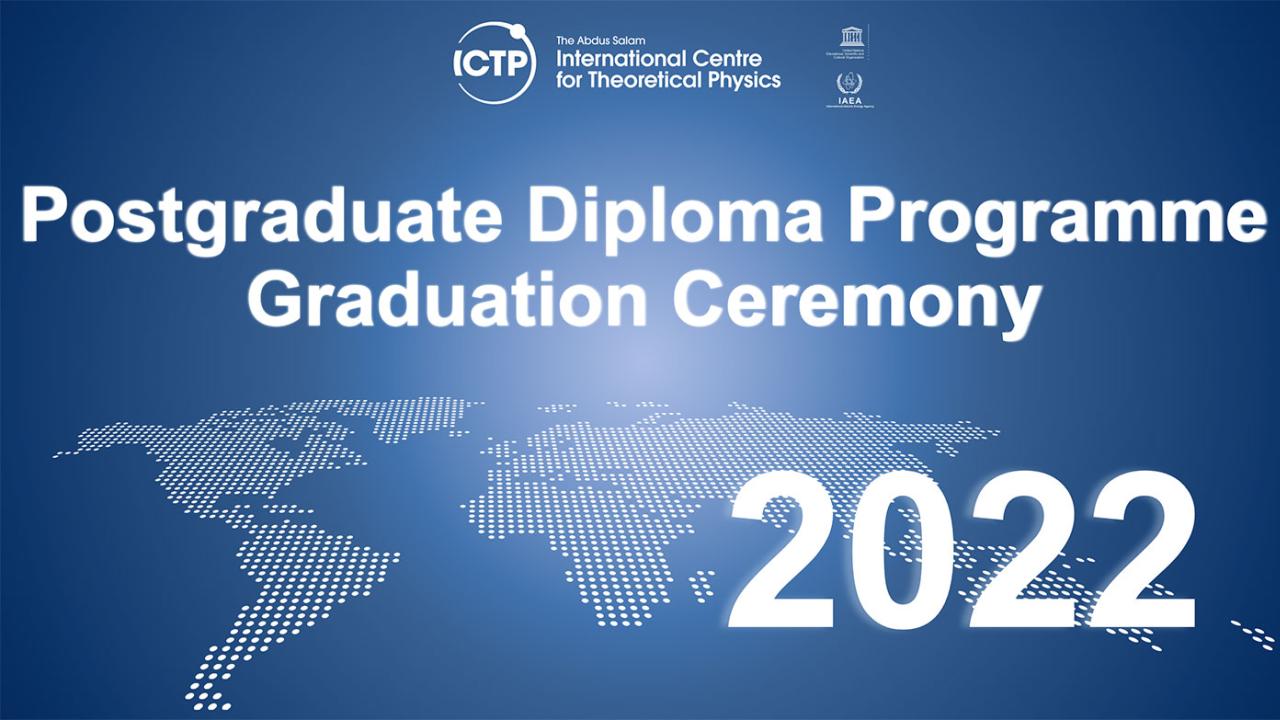
Some 43 young scientists from 26 countries will soon count themselves as graduates of ICTP's intense Postgraduate Diploma Programme after a ceremony on Friday 26 August celebrating their successful completion of the programme.
The Postgraduate Diploma Programme graduation ceremony will take place at ICTP starting at 15:00 CET, and will be livestreamed on the Centre’s YouTube channel. It will include a keynote lecture by ICTP Dirac Medallist Dam Thanh Son on "Particles and Quasiparticles: Between Particle and Condensed Matter Physics". More details about the ceremony can be found here.
The Diploma students, who have spent the past year at ICTP attending graduate-level courses in physics and mathematics, are now equipped with the knowledge and learning skills needed to advance their careers. As a result of their ICTP studies, many have been accepted to doctoral or master's programmes at top universities around the world, while others will return to their home countries to share their knowledge with colleagues and students.
"The Diploma Programme has been a great experience, both for my career and personally," said Johann Sebastian Quenta Raygada of Peru, whose studies at ICTP exposed him to topics in mathematical physics that would have been impossible to pursue in his home country due to a lack of expertise there. "The strength of the Programme is its basic idea, that you take people from developing countries who are having a hard time finding the research opportunities, and you put them in this programme and train them, and then they can freely go to, say, PhD programmes overseas. For many of my classmates, I've seen how they've succeeded in doing this."
ICTP's Postgraduate Diploma Programme is designed to assist students from developing countries who are interested in further study in physics or mathematics. The programme especially helps students reach international standards of knowledge and competences, striving to fill in any past gaps in their education. This is done in order to prepare them to compete successfully for graduate studies at any institution in the world. The programme offers five areas of instruction: high energy physics, condensed matter physics, mathematics, Earth system physics, and quantitative life sciences.
















